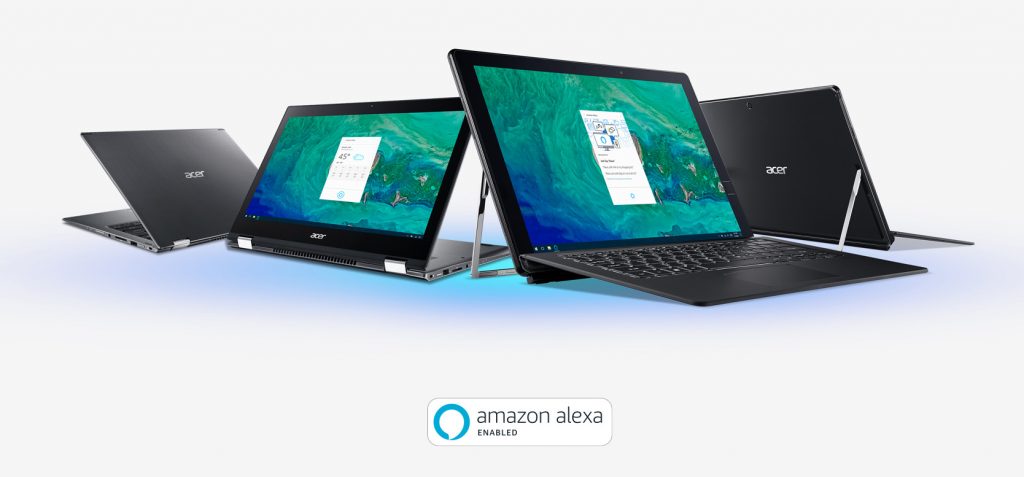These AI voice assistants want your office jobs
Amazon, originator of the smart speaker category in the home, is taking Alexa into the office too. However, as David McClelland explores in the first of a two-part feature, Amazon isn’t the only outfit attempting to add some AI smarts to our workplaces.
AI voice assistants were the big present under our trees this Christmas.
Affordable smart speakers from the likes of Amazon and Google — along with the less-affordable such as the Apple HomePod which finally launches on February 9 — promise to voice-activate our living spaces, bringing the dream of the futuristic smart-home within reach of the masses.
Amazon is tight-lipped about how many Alexa-powered devices it shifted last month, but stats show that the Alexa app – necessary to set up new Amazon Echo devices – claimed the app stores’ coveted Christmas number one spots.
In Las Vegas, CES continued the trend revealing an appetite — or desperation — to stuff an artificially intelligent voice into any appliance imaginable.
So, it’s no surprise that those in charge of our workplaces should begin experimenting with how conversational AI assistants might smarten-up our office lives too.
Assistant Appeal
Ease-of-use and convenience are a big part of the voice assistant appeal, concentrating an ever-expanding catalogue of popular services into a single, natural interface:
Alexa: tell me the weather, turn on my central heating, check my diary, call my mum, play my favourite songs, add some batteries to my shopping list, switch off the house lights. Please?
An impressive array of skills, no more than a trigger word away. What’s more, the majority of the time it just works — speech recognition finally got useful, and we barely even noticed.
Projecting these skills into the workplace doesn’t take a great deal of imagination:
Alexa: book me a conference room, replace printer toner, turn on the projector, start my meeting, message my boss to tell her I’m running late. Now.
In its announcement of Alexa for Business in November, Amazon spoke about how some Alexa devices would be shared for “anyone to use in common areas around your workplace,” while others would remain “personal Alexa devices for your employees to use.”
The ability to integrate with workplace workflows, software platforms and business processes — ‘skills’ for the workplace — will no doubt be important for a professional user-base.
Business Apps
At London Tech Week 2017, Inspect-a-Gadget spoke with a UK startup hoping to bring its office-friendly smart assistant, UMA, to a workplace near you.
Alongside room bookings, maintenance requests and more, UMA plays big on its hooks into business applications such as Salesforce, Slack, Cisco Spark and Box.
Building a portfolio of skills and integrations is one thing, but other vendors are taking a narrower approach to their office AI.
Spark will fly
At its recent partner summit, Cisco powered up its collaborative Spark platform with its own voice assistant. Billed as the ‘world’s first AI-powered voice assistant for meetings’, Cisco Spark Assistant is the first fruit of last year’s $125 million MindMeld acquisition.
Spark Assistant won’t tell you the weather or apply its AI to work out which playlist will suit your mood: instead, it is razor-focused on meetings and collaboration. “Hey Spark, I want to start the meeting/end the meeting/call Robert’s meeting room.”
Desktop
PCs have dabbled with voice assistants in the past, although Cortana has struggled to gather as much traction as Microsoft might have liked. Last year’s hook-up between Cortana and Alexa hook has yet to show any signs of bearing fruit either.
Then, as Inspect-a-Gadget reported here, the likes of ASUS, Acer and HP were lining up at CES to offer an integrated Alexa experience in their new desktops and laptops. Acer even showcased its Alexa Projector.

Acer Brings Amazon Alexa to PCs
Commenting on the tie-up with ASUS to bring Amazon’s assistant to its PC range, an Intel rep enthused: “we anticipate that the PC will serve an even more important role in maximising your productivity, getting the most from your entertainment, and managing the smart home or office.”
Will privacy and security concerns — as well as office etiquette — hamper AI voice assistants’ office party? Read on in part two – soon.



